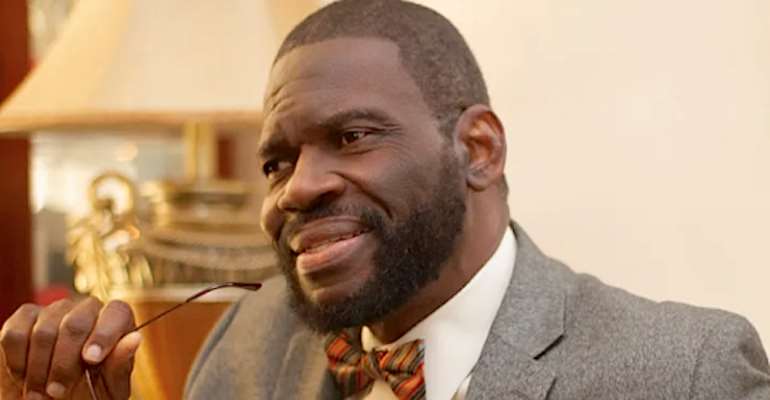The Time Has Come For An Idealistic Revolution In Nigeria.

Nigeria is ready for an idealistic revolution; the time has come to begin.
During the 2023 election season, Nigerians in a supposedly democratic environment were clearly subjected to political and economic slavery more than ever before. Physical force is always used by the state and federal governments to quell the vast majority of Nigerians' demands for liberty, freedom, and equality, including youths and young adults as well as the average Nigerian.
Nigeria is only a democracy in name, as evidenced by the fact that during this election period, many Nigerians were deprived of their political liberties, forced to act on a ruler's instructions in deciding who to vote for, lacked control over their property in deciding how to use their voting rights, and those who tried to resist were met with absolute tyranny of the state and federal powers via the police, military, security officials, sponsored thugs, and unknown killers.
Rising citizen discontent with security, economic, and political issues, particularly rising violence, and poverty, have fueled anti-government protests in Nigeria at various times.
Rising citizen rage, particularly over political, economic, and educational issues, has fueled anti-government protests to a new high in recent years, but we also know about the government's brutal and lethal responses on the bodies of protesters.
So, what should we do now to continue the revolution? I refer to it as the Idealistic Driven Revolution (IDR for Nigeria), a strategy that will completely avoid the intentional use of state power (such as tear gas, water cannons, and live rounds) against people and property during revolutionary movements. Instead of risky massive street protests against all forms of injustice within Nigeria, the idealistic-driven revolution necessitates global and national participation propelled by technology.
The power of an idealistic-driven revolution is transforming almost every aspect of our lives. Every minute, both within and outside of Nigeria, should now involve aggressively sending all forms of any audio/video talk, image, photographs, items, and materials that demonstrate signs of injustice in order to revolutionize various dissents.
Aggressive social media-organized protest coordinated mass virtual unrest, and a large volume of organized or individual e-mail letters to national and global authorities are among IDR strategies.
Images of violent scenes on the streets against voters, gun-toting cops, and security men and women guarding thugs who openly disrupt legitimate voting have become more common this election season. These autocratic moves are unstoppable, at least in terms of street protest.
So, all we have is a technology-powered IDR that will disseminate information to global economies and leaders, who must explicitly condemn the extraordinary hardship, violence, and intimidation that is impeding Nigeria's democratic development. Furthermore, these depraved leaders', their supporters, friends, and families must be barred from entering or residing in their countries.
Let us begin by protesting quietly and loudly against local issues such as dissatisfaction with a leader, rising fuel prices, cash scarcity, economic inequality, political corruption, government violence, and poor governance.
There is a need for continued protest outside of Nigeria, where protesters will not be violently attacked by authorities, and a call made by a former Army chief Theophilus Danjuma, urging Nigerians to rise up and defend themselves against violent attacks and injustice inform of what I call full-fledged self-defense protest should continue only if the protester is willing to take such a risk, which I will not advise, IDR is the new way.
If you believe that previous and current political systems have failed to respond to people's cries, let us use other channels, such as IDR, to make a difference. The time has come for an idealistic revolution in Nigeria. May the good God, good spirits, and wise people be with Nigeria.
Professor John Egbeazien Oshodi, who was born in Uromi, Edo State, Nigeria, to a father who served in the Nigeria police for 37 years, is an American-based police and prison scientist and forensic, clinical, and legal psychologist. A government consultant on matters of forensic-clinical adult and child psychological services in the USA; chief educator and clinician at the Transatlantic Enrichment and Refresher Institute, an online lifelong center for personal, professional, and career development; and a former interim associate dean and assistant professor at Broward College, Florida. The Founder of the Dr. John Egbeazien Oshodi Foundation, Center for Psychological Health and Behavioral Change in African Settings A former Secretary-General of the Nigeria Psychological Association. In 2011, he introduced state-of-the-art forensic psychology into Nigeria through N.U.C. and Nasarawa State University, where he served in the Department of Psychology as an Associate Professor. An adjunct professor in the doctorate clinical psychology program at Nova Southeastern University’s College of Psychology in Florida, USA. A contributing faculty at the Psychology program, Walden University. Director of Online Studies and Professor of Psychology—Online Faculty at Weldios University in the Republic of Benin. He is a virtual behavioral leadership professor at ISCOM University, Republic of Benin. Founder of the proposed Transatlantic Egbeazien Open University (TEU) of Values and Ethics, a digital project of truth, ethics, and openness. Over forty academic publications and creations, at least 300 public opinion pieces on African issues, and various books have been written by him. He specializes in psycho-prescriptive writings regarding African institutional and governance issues. His most recent textbook publication is Concise Psychology: An Integrated Forensic Approach to Psychology for Global African Settings.
